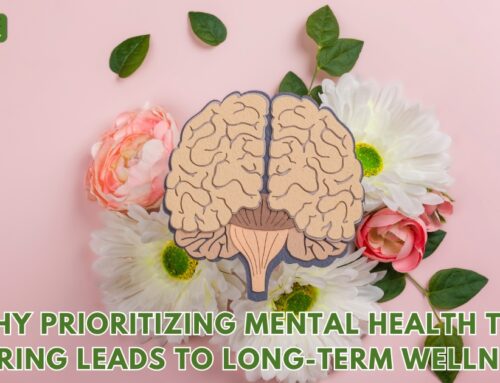The Importance of Sleep in Emotional Regulation and Mental Health
In the bustling pace of modern life, sleep is often the first sacrifice at the altar of productivity and social commitments. However, the cost of this sacrifice is high, particularly when it comes to our emotional well-being and mental health. At White Oak Counseling and Recovery Center, we emphasize the critical role that sleep plays in emotional regulation and overall mental health. This blog post explores the intricate relationship between sleep and mental health and offers strategies to improve sleep quality for better emotional and psychological resilience.
The Link Between Sleep and Mental Health
Sleep is not just a period of physical rest but a crucial process for the brain, during which emotional and cognitive restoration occurs. It plays a pivotal role in brain function, influencing mood, emotional regulation, cognitive abilities, and stress resilience. The lack of adequate sleep can lead to a range of psychological issues, including increased anxiety, depression, irritability, and decreased emotional regulation.
Emotional Regulation
Emotional regulation, the ability to manage and respond to an emotional experience, is significantly affected by sleep. A well-rested brain is better equipped to assess situations rationally, maintain emotional stability, and respond appropriately to stress. Conversely, sleep deprivation can lead to heightened emotional reactivity, making it difficult to handle stress and challenges effectively.
Stress and Anxiety
There is a bidirectional relationship between sleep and stress/anxiety. Poor sleep can exacerbate feelings of stress and anxiety, while high stress levels can interfere with the ability to fall asleep or maintain deep sleep. Chronic sleep problems may even contribute to the development of anxiety disorders.
Depression
Studies have shown a strong link between sleep disturbances and depression. Insomnia, one of the most common sleep disorders, is often a precursor to depressive episodes. Conversely, excessive sleep, or hypersomnia, can also be a symptom of depression. Ensuring a balanced sleep pattern is crucial in managing and potentially preventing depressive symptoms.
Strategies for Improving Sleep
Improving sleep quality is essential for maintaining mental health and emotional well-being. Here are some strategies to promote better sleep:
- Establish a Regular Sleep Schedule: Going to bed and waking up at the same time every day helps regulate your body’s internal clock, improving sleep quality.
- Create a Restful Environment: Ensure your sleeping environment is conducive to rest. This means a comfortable mattress and pillows, a cool room temperature, and minimal noise and light.
- Limit Exposure to Screens Before Bed: The blue light emitted by screens can interfere with your body’s production of melatonin, the hormone that regulates sleep. Try to avoid screens at least an hour before bedtime.
- Incorporate Relaxation Techniques: Practices such as meditation, deep breathing exercises, or gentle yoga before bed can help reduce stress and promote relaxation, making it easier to fall asleep.
- Exercise Regularly: Regular physical activity can help you fall asleep faster and enjoy deeper sleep. However, avoid vigorous exercise close to bedtime as it may have the opposite effect.
- Watch Your Diet: Avoid heavy meals, caffeine, and alcohol before bedtime, as they can disrupt sleep.
Conclusion
Sleep is a foundational pillar of mental health and emotional well-being. At White Oak Counseling and Recovery Center, we encourage everyone to prioritize sleep as an essential component of their mental health regimen. Understanding the profound impact that sleep has on emotional regulation and mental health can motivate us to adopt healthier sleep habits.
If you’re struggling with sleep issues and their impact on your mental health, remember that help is available. Professional support can provide personalized strategies to improve sleep quality and address any underlying mental health conditions. Let’s not underestimate the power of a good night’s sleep in fostering resilience, emotional stability, and a healthier mind.





